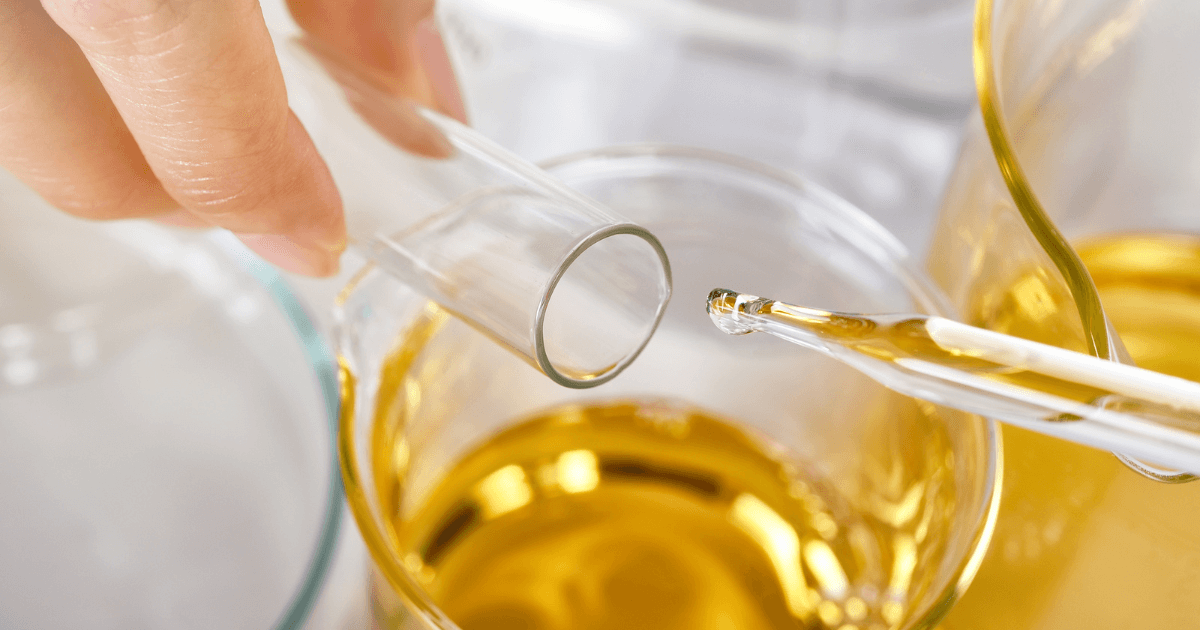Hash oil, also known as cannabis oil or honey oil, is a highly concentrated form of marijuana that has become increasingly popular in recent years. It is made by extracting the resinous trichomes from the plant using a solvent, which is then evaporated, leaving behind a thick, sticky, and potent substance that can be smoked, vaporized, or consumed orally. Hash oil can have THC levels as high as 90%, making it much more potent than traditional forms of marijuana.
In this article, we will explore the various methods of producing hash oil, its uses, effects, and potential risks associated with its consumption.
What is Hash?
Hash, short for hashish, is a concentrated form of cannabis made from the resinous trichomes found on the flowers, leaves, and stems of the marijuana plant. The trichomes contain high levels of cannabinoids such as THC (tetrahydrocannabinol) and CBD (cannabidiol), which are responsible for the plant’s psychoactive and medicinal effects.
Hash can be produced using a variety of methods, including hand rubbing, dry sieving, and ice water extraction. The resulting product is typically a soft, crumbly substance that can range in colour from light tan to dark brown or black, depending on the quality of the starting material and the production process used.
Hash can be consumed in a variety of ways, including smoking, vaporizing, or mixing it with food or drinks. It is known for producing a strong, long-lasting high that can have both relaxing and euphoric effects on the user. However, as with any form of cannabis, there are potential risks associated with hash use, particularly when it comes to the respiratory system and mental health.
What is Hash Oil?
Hash oil, also known as cannabis oil, honey oil, or BHO (butane hash oil), is a concentrated form of cannabis that is extracted from the plant using a solvent. The resulting product is a thick, sticky substance that is high in THC (tetrahydrocannabinol) and other cannabinoids.
The extraction process involves dissolving the trichomes (resin glands) from the plant material using a solvent such as butane, ethanol, or CO2. The solvent is then evaporated, leaving behind a highly potent oil that can be used for various purposes, including smoking, vaporizing, or consuming orally. Hash oil can have THC levels as high as 80-90%, which is significantly higher than traditional forms of cannabis.
Hash oil can come in different forms, including shatter, wax, budder, or sauce, depending on the consistency and texture of the final product. It is commonly used for medical purposes, particularly for patients who need high doses of THC or CBD for pain relief, anxiety, or other conditions.
However, producing hash oil can be dangerous, particularly when using flammable solvents such as butane. Improper ventilation or handling can lead to explosions or fires, and residual solvents in the final product can pose health risks to the user. Therefore, it is important to use caution and follow proper extraction techniques when producing or using hash oil.

How is Hash Oil Made?
Hash oil is made using a process called extraction, which involves dissolving the resinous trichomes of the cannabis plant in a solvent to create a highly concentrated oil. The most common solvents used for extraction are butane, ethanol, or CO2.
Here are the general steps involved in making hash oil:
- Choose high-quality cannabis: The first step in making hash oil is selecting high-quality cannabis flowers or trim. The quality of the starting material will have a significant impact on the final product.
- Grind the cannabis: The plant material is ground or broken down into small pieces to increase the surface area and make it easier for the solvent to dissolve the trichomes.
- Extract the trichomes: The ground cannabis is then placed in a container with the chosen solvent (butane, ethanol, or CO2) and agitated to dissolve the trichomes. The resulting solution is filtered to remove any plant material or impurities.
- Evaporate the solvent: The solution is then placed in a heat-safe container and heated to evaporate the solvent, leaving behind a highly concentrated oil.
- Purge the residual solvent: The final step is to purge any residual solvent from the oil using heat and vacuum. This step is crucial for safety and health reasons as any remaining solvents can be harmful to the user.
The resulting hash oil can be further processed into various forms, such as shatter, wax, budder, or sauce, depending on the desired consistency and texture.
It’s worth noting that producing hash oil can be dangerous, particularly when using flammable solvents such as butane. It is important to follow proper safety protocols and use caution when making hash oil.
Benefits of Hash Oil
Hash oil, also known as cannabis oil, is believed to offer several potential benefits due to its high concentration of cannabinoids, including THC and CBD.
Here are some of the potential benefits of hash oil:
- Pain relief: Hash oil may be effective in providing relief from chronic pain conditions, such as arthritis, neuropathy, or cancer-related pain.
- Anxiety and depression: The cannabinoids in hash oil may have anti-anxiety and anti-depressant effects, making it a potential treatment for anxiety disorders, depression, and PTSD.
- Nausea and vomiting: Hash oil has been shown to be effective in reducing nausea and vomiting in cancer patients undergoing chemotherapy.
- Appetite stimulation: THC, the main psychoactive compound in hash oil, can stimulate appetite and may be beneficial for people with appetite loss or eating disorders.
- Neuroprotective effects: CBD, another cannabinoid found in hash oil, has been shown to have neuroprotective effects, potentially offering benefits for conditions such as epilepsy, multiple sclerosis, and Alzheimer’s disease.
- Sleep disorders: Hash oil may also be helpful for people with sleep disorders, such as insomnia or sleep apnea, due to its calming and relaxing effects.
It’s worth noting that research on the potential benefits of hash oil is still limited, and more studies are needed to fully understand its effects and potential risks. Additionally, hash oil may not be legal in all states or countries, so it’s important to check local laws and regulations before using it.

How to Take Hash Oil?
Hash oil can be consumed in a variety of ways, including smoking, vaporizing, or consuming orally.
Here are some of the most common ways to take hash oil:
- Smoking: Hash oil can be added to a joint or bowl of cannabis flower and smoked like traditional marijuana. It can also be smoked on its own using a dab rig or vaporizer pen designed for concentrates.
- Vaporizing: Vaporizing, or “vaping,” hash oil is a popular way to consume it. A vaporizer heats the oil to a temperature where it vaporizes but doesn’t burn, producing a clean and smooth inhalation experience.
- Edibles: Hash oil can be added to food or drinks to create “edibles” that can be ingested orally. However, it’s important to note that the effects of edibles can take longer to onset and last longer than other methods of consumption.
- Topicals: Hash oil can be added to creams or lotions for topical application, offering potential benefits for skin conditions or localized pain relief.
When consuming hash oil, it’s important to start with a small amount and go slow, especially if you’re new to using concentrated cannabis products. The high THC content of hash oil can be intense, and consuming too much at once can lead to unpleasant side effects. Additionally, hash oil may not be legal in all states or countries, so it’s important to check local laws and regulations before using it.
Where to Buy Hash Oil Online in Canada?
In Canada, the sale and purchase of cannabis and cannabis products, including hash oil, are legal and regulated by the government. The best way to purchase hash oil online in Canada is through licensed cannabis retailers or producers. You can find a list of authorized retailers and producers on the website of the Canadian government’s health department.
Some popular online cannabis retailers in Canada include:
These online stores offer a variety of cannabis products, including hash oil, and provide information on each product’s potency, effects, and dosage recommendations. They also ensure that the products they sell meet safety and quality standards.
Before making a purchase, it’s important to check the website’s shipping policies, payment methods, and return policies, as they may vary between online marijuana dispensaries and cannabis delivery sites. Additionally, it’s important to ensure that you’re legally allowed to purchase and consume cannabis products in your province or territory.
Find up-to-date information on top-rated weed delivery and online dispensaries at BC Weed Delivery
References
Holland, K. (2020, July 20). CBD vs. THC: What’s the Difference? Healthline. Available at: https://www.healthline.com/health/cbd-vs-thc
Daily Edibles Delivery. (2023, June 3). Enjoy the Best Deals On Same-Day Weed Delivery in Vancouver. Available at: https://dailyedibles.io/
Kyle, E. (2021, January 13). EASY, BEGINNER’S GUIDE TO CANNABIS DECARBOXYLATION. EmilyKyleNutrition.com. Available at: https://emilykylenutrition.com/cannabis-decarboxylation/
Highest Farmacy. (2023, June 3). Get Timely and Reliable Same-Day Cannabis Oil Delivery in Toronto and Surrounding Cities. Available at: https://highestfarmacy.com/product-category/cannabis-edibles/tinctures/
Government of Canada. A FRAMEWORK FOR THE LEGALIZATION AND REGULATION OF CANNABIS IN CANADA. Available at: https://www.canada.ca/content/dam/hc-sc/healthy-canadians/migration/task-force-marijuana-groupe-etude/framework-cadre/alt/framework-cadre-eng.pdf



